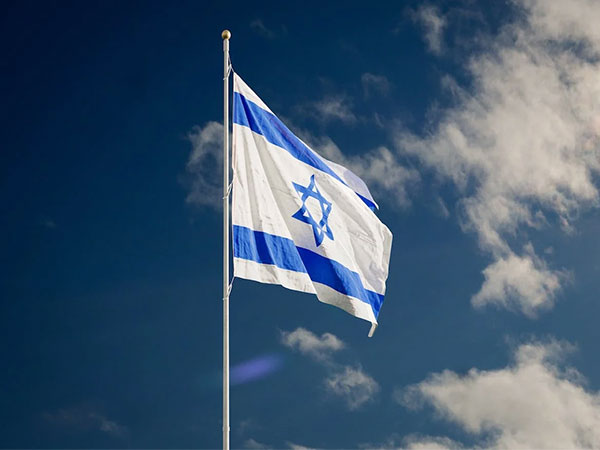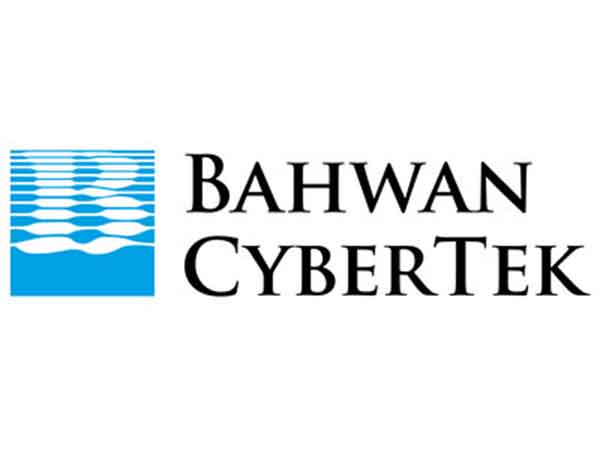NATO condemns China as 'decisive enabler' of Russian aggression in Ukraine
Jul 11, 2024

Washington, DC [US] July 11 : The NATO accused China of playing a role of "decisive enabler" of Russia's war against Ukraine, marking a significant escalation in the alliance's stance on Beijing and its "systematic challenges" to global security, CNN reported.
At a summit hosted by US President Joe Biden in Washington, 32-member alliance issued a joint declaration condemning China as a "decisive enabler" of Russia's aggression.
Despite bans on China's exports, Chinese semiconductors, machine tools and other parts have become vital to Russia's defence industry, which they argue has emboldened Moscow's military operations in Ukraine.
The statement mentioned NATO's growing concerns over China's deepening ties with Russia since the declaration of a "no limits" partnership with Russia and its "large-scale support for Russia's defence industrial base" are enabling Moscow to wage its war, the NATO leaders' statement said, as they urged Beijing to "cease all material and political support to Russia's war effort."
NATO leaders expanded their concerns beyond previous statements, focusing more extensively on China's increasing capabilities and activities in space. They also reiterated apprehensions regarding Beijing's alleged "malicious cyber activities," hybrid operations such as disinformation campaigns, and the "rapidly" expanding of its nuclear arsenal, as reported by CNN.
"We remain open to constructive engagement with the PRC, including to build reciprocal transparency with the view of safeguarding the Alliance's security interests," the statement said, referring to China by the initials of its official name.
"At the same time, we are boosting our shared awareness, enhancing our resilience and preparedness, and protecting against the PRC's coercive tactics and efforts to divide the Alliance."
Despite claims of neutrality, China's substantial economic and diplomatic backing for Russia has raised alarms among Western leaders. They accuse Beijing of supplying critical dual-use goods that sustain Russia's war machine, including advanced weaponry and military equipment, despite Beijing's assurances of strict export controls.
NATO's condemnation extends beyond China's role in Ukraine, encompassing broader concerns about Beijing's activities in cyberspace, its rapid expansion of nuclear capabilities, and its assertive maneuvers in outer space. The alliance has expressed deep apprehension over what it describes as China's "malicious cyber activities" and efforts to divide and coerce NATO member states.
On Thursday, China criticised the NATO statement as "filled with Cold War mentality and belligerent rhetoric," and said it was "provocative with obvious lies and smears."
"China is not the creator to the Ukraine crisis. China's position on Ukraine is open and aboveboard. We aim to promote peace talks and seek political settlement," a statement from its mission to the European Union said.
"We remain open to constructive engagement with China, but we are also enhancing our resilience against Beijing's coercive tactics," the NATO statement affirmed, referring to China by its official initials, PRC.
The NATO leaders' summit also highlighted the alliance's increasing focus on Asia-Pacific security dynamics. In recent years, NATO has intensified its engagement with key partners in the region, including Japan, South Korea, Australia, and New Zealand, reflecting growing concerns over China's assertiveness in maritime disputes and strategic rivalries.
The US and European Union have imposed targeted sanctions on Chinese entities allegedly complicit in supporting Russia's aggression, underscoring the deepening rift between Western powers and Beijing over their divergent geopolitical interests.
Later on Thursday, China's Foreign Ministry criticised the NATO declaration, with a spokesperson portraying NATO as a significant global threat and restating Beijing's assertion that the alliance was exacerbating the conflict in Ukraine, according to CNN.
The NATO leaders' statement marks the latest development in the bloc's increasingly critical stance towards China in recent years. Initially addressing the need to collectively manage "opportunities and challenges" posed by China in 2019, NATO progressed to highlighting the "systemic challenges" posed by the country in 2021.
This shift coincides with heightened US focus on the Indo-Pacific region amidst escalating competition with Beijing, especially as China, under President Xi Jinping's leadership, has displayed more assertive behavior both regionally and globally.
NATO's strategic attention on Asia has intensified over the past two and a half years due to heightened geopolitical tensions following Russia's invasion of Ukraine. During this period, the Kremlin has strengthened ties not only with China but also with North Korea and Iran.
Additionally, NATO leaders on Wednesday accused Pyongyang and Tehran of directly supporting Russia's war efforts, condemning North Korea's exports of artillery shells and ballistic missiles to Russia. These shipments have reportedly been monitored since last year's meeting between Russian President Vladimir Putin and North Korean leader Kim Jong Un in the Russian Far East, CNN reported.
"The Indo-Pacific is important for NATO, given that developments in that region directly affect Euro-Atlantic security," the leaders said in their declaration.
"We are strengthening dialogue to tackle cross-regional challenges and are enhancing our practical cooperation, including through flagship projects in the areas of supporting Ukraine, cyber defense, countering disinformation, and technology," it said.
As NATO continues to ramp up its criticism of China's global ambitions, particularly its alignment with Russia, Beijing has pushed back, accusing NATO of exacerbating tensions in the Asia-Pacific region. China argues that its regional policies prioritise peaceful development and mutual cooperation, contrasting sharply with what it perceives as NATO's destabilising presence.
Amid escalating geopolitical tensions, NATO's evolving strategy reflects a broader recalibration of global power dynamics, with China and Russia challenging the Western-led order. The alliance's renewed emphasis on Asia-Pacific security underscores its commitment to safeguarding Euro-Atlantic interests against what it views as growing Chinese assertiveness and strategic encroachments.
In its statement Thursday, Beijing's EU mission called on NATO to "correct its wrong perception of China," and "abandon the Cold War mentality and zero-sum game."
"The Asia-Pacific region is a place for peaceful development, not a wrestling ground for geopolitical competition ... NATO should not become the disrupter of peace and stability in the Asia-Pacific," the statement said, CNN reported.




















